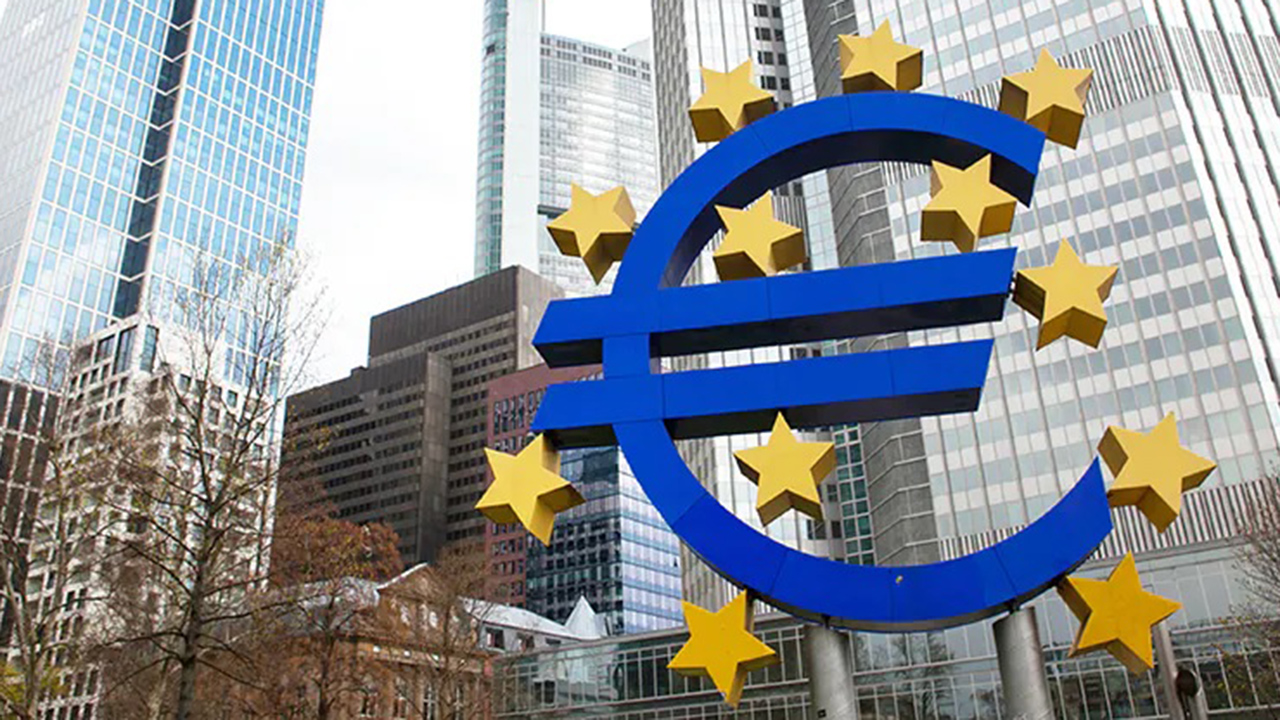Sidestepping taper talk, ECB to stick to stimulus plans
The bank is pinning borrowing costs near record lows via massive bond purchases to see the euro zone through a scarring recession
The European Central Bank will keep policy unchanged on Thursday, emphasizing its stimulus measures are keeping the pandemic-struck economy afloat so they should not be clawed back too soon.
The bank is pinning borrowing costs near record lows via massive bond purchases to see the euro zone through a scarring recession that has kept schools, shops, restaurants and hotels closed for the better part of a year.
GET FOX BUSINESS ON THE GO BY CLICKING HERE
ECB chief Christine Lagarde is likely to argue that only a bit more time is needed before the economy roars back from its pandemic-induced hibernation and that the bank needs to stick to its guns as exiting too early would be costlier than stopping too late.
Many ECB watchers see Thursday's meeting as a placeholder, setting the stage for June, when policymakers have to decide whether to slow down bond buying even if that means allowing borrowing costs to drift higher.
"The ECB can take it easy this Thursday," Berenberg economist Holger Schmieding said. "The economy and inflation are roughly on track, financing conditions are favourable and markets are calm."
The euro was little changed against the U.S. dollar early on Thursday, at $1.2031, while euro zone bond yields eased, holding around the level where they were on the ECB's previous policy meeting on March 11.
EU PROPOSES SIX-MONTH TARIFF FREEZE WITH UNITED STATES: REPORT
At that time, the ECB agreed to step up its bond buys and most policymakers speaking since then have been content with stopping a surge in borrowing costs on financial markets, with some inflation-adjusted yields even trending lower as a result of the bank's intervention.
But at the current pace, the ECB is likely to exhaust its purchase quota before its scheduled end next March, so its June decision will be a crucial signal as to whether its 1.85 trillion euro ($2.22 trillion) Pandemic Emergency Purchase Programme (PEPP) can be wound down early next year.
Dutch policymaker Klaas Knot, one of the most conservative members of the Governing Council, has already said starting to wind down purchases from June may be possible, even if others have so far pushed back on the idea, saying taper talk is premature given the deadly third wave of COVID-19.
Other central banks have started heading for the exit. The Bank of Canada signaled on Wednesday it could start hiking interest rates in late 2022, as it sharply boosted its outlook for the Canadian economy and reduced the scope of its bond buying programme.
GOOD NEWS
Even if growth is fragile and lockdowns have been extended beyond earlier expectations, there is plenty for Lagarde to cheer.
POWELL PLEDGES FED WON'T ALLOW 'SUBSTANTIAL' OVERSHOOT OF INFLATION
The current wave of the pandemic seems to have plateaued in Europe, the pace of vaccinations is accelerating and the European Union's 750 billion euro recovery fund has cleared a key court challenge.
Companies are also showing versatility in adapting to life under the lockdown and governments are adding to fiscal support measures, ensuring firms stay afloat.
All this points to a rapid recovery as immunity levels rise, which will present the ECB with a policy dilemma sooner, rather than later.
The bank has promised "favourable" financing conditions and extra bond purchases during the "emergency" phase of the pandemic.
But neither of these terms has been defined, leaving investors guessing how it reacts to the eventual rebound.
Once the recovery takes hold and the ECB cuts bond purchases, the key question will be just how much of a yield rise is warranted and how the bank can avoid the impression of micro-managing yields.
"The challenge for the ECB will to be ensure that a slowdown in the purchase pace from June is not perceived as a change to the ECB's reaction function, and is instead viewed as a response to the improvement in the economic backdrop," BNP said in a note to clients.
The ECB will deliver its policy decision at 1145 GMT, which is then followed by Lagarde's 1230 GMT news conference.
CLICK HERE TO READ MORE ON FOX BUSINESS
With policy unchanged, the ECB's deposit rate is seen remaining at minus 0.5% and the main rate steady at 0%.
($1 = 0.8328 euros)
(Reporting by Balazs Koranyi; Editing by Catherine Evans and Lincoln Feast)
